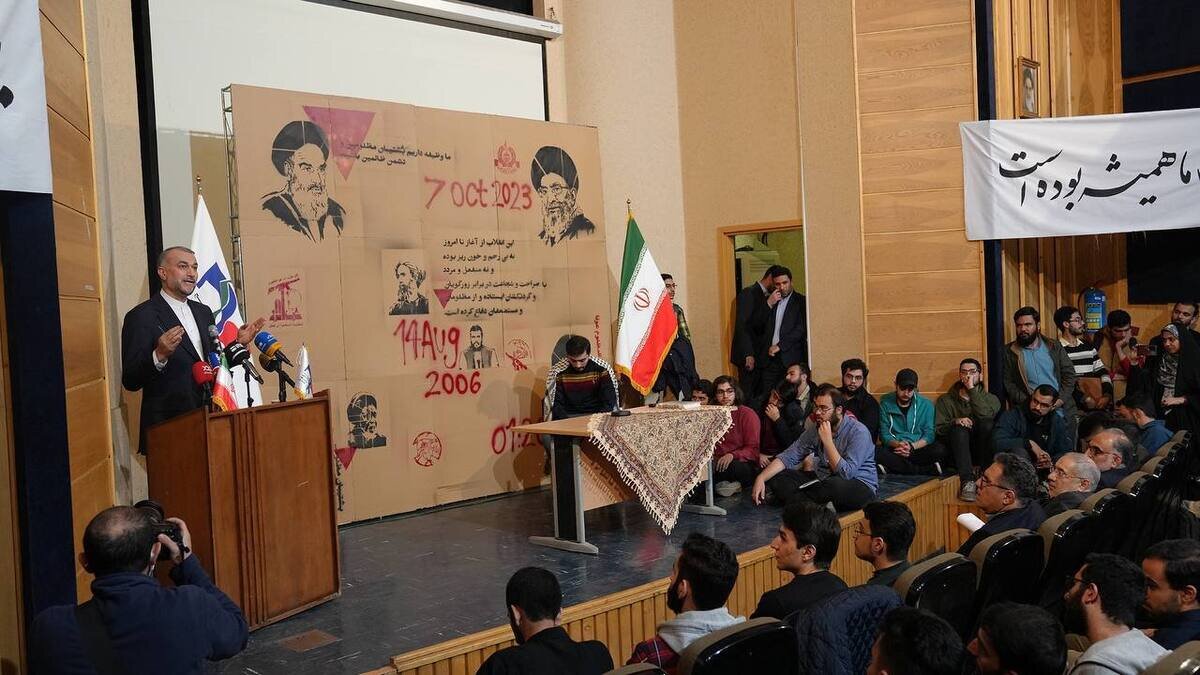Iran is interested in negotiations but not of the same type as the JCOPA

TEHRAN- Despite the failure of the Joint Comprehensive Plan of Action (JCOPA) in securing Tehran's interests, Iran is open to negotiations but in a way different than in the past.
The 2015 Iran deal was inked in July 2015 between Iran and the five permanent members of the UN Security Council- the United States, Russia, China, Britain, and France- along with Germany.
Iranian Foreign Minister Hossein Amir Abdollahian, in a meeting on Saturday, expressed concerns over the diminishing effectiveness of the JCOPA.
He further noted that Iran will not remain ensnared within the tight tunnels of JCOPA forever.
Explaining the flaws and benefits of the JCOPA, the minister stated that if it secures Iran’s interests, despite its imperfections, Tehran “will utilize it.”
According to Amir Abdollahian, foreign and domestic policies can be shaped through adherence to principles and respect for red lines.
The head of the Iranian diplomacy apparatus emphasized, “We will not compromise on our red lines.”
Iran may welcome negotiations, but only if the JCPOA aligns with Tehran's interests.
Is JCOPA still efficient?
Since the beginning of formal negotiations over the JCOPA in 2013, the Iranian people have been worried about the agreement since it was centered around imposing restrictions on Iran’s critical nuclear facilities.
Under the JCPOA, Iran agreed to eliminate its stockpile of medium-enriched uranium, cut its stockpile of low-enriched uranium by 98%, and reduce by about two-thirds the number of its gas centrifuges for 13 years. For the next 15 years, Iran agreed to enrich uranium only up to 3.67%. It also agreed not to build any new heavy-water facilities for the same period of time.
The agreement's negative impact on the Iranian people's minds, coupled with the U.S. withdrawal from the agreement during Donald Trump's presidency in May 2018, made everyone hesitant about the terms of the agreement. These terms included receiving relief from nuclear-related sanctions imposed by the U.S., European Union, and United Nations Security Council.
After the U.S. exit from the agreement, the Instrument in Support of Trade Exchanges (INSTEX) as a European special-purpose vehicle (SPV) was established on 31 January 2019 with the mission to facilitate non-USD and non-SWIFT transactions with Iran to avoid breaking U.S. sanctions.
Five EU nations including Belgium, Denmark, Netherlands, Finland, and Sweden declared in a joint statement on 29 November 2019 that they would join the INSTEX mechanism for trade with Iran.
INSTEX, without much gain to Iran, was terminated later on March 2023 by European countries.
The West's failure to fulfill its commitments, along with the escalating limitations on Iran's military industries, the imposition of more sanctions, and the negligible impact of the JCPOA on Iran's economy, rendered the agreement ineffective. It seems that the last nail in the coffin of the agreement has been hammered.
Iran’s progress has sent a message to the West
Although numerous restrictions were imposed on Iran, it kept moving on the path of development in various fields, sending a message to the West that with or without the JCOPA, Iran would be on the right track of progress and development.
Iran’s military, scientific, medical, and economic progress have given Tehran the upper hand in any probable negotiations.
Bearing in mind how the West treated the JCOPA, Iranian officials will consider Tehran’s current capabilities for possible negotiations with the West.
In a nutshell, despite the unsuccessful outcome of the JCOPA, Iran has clearly stated that the country’s redlines are non-negotiable.
Thanks to the years-long experience of the West in its Iran policy, it can be clearly stated that the maximum pressure policy no longer works toward Iran. The West knows that neither sanctions nor threats can derail Iran from its path.
Director-general of the International Atomic Energy Agency Rafael Grossi, in his recent talk to the Wall Street Journal, called for the “recreation of a system of dialogue with Iran.”
He further urged nations to “sit down and re-engage.”
“We’re not asking for people to put pressure on Iran but to engage with us,” Grossi said, voicing the failure of the pressure policy in the face of Iran’s nuclear plans.
Leave a Comment